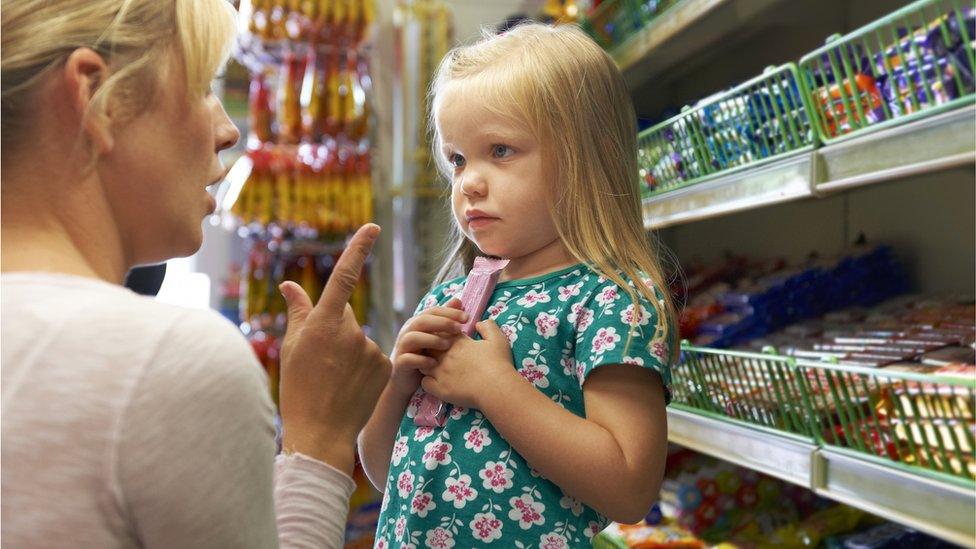What do you think of a public transport snack ban?
- Published
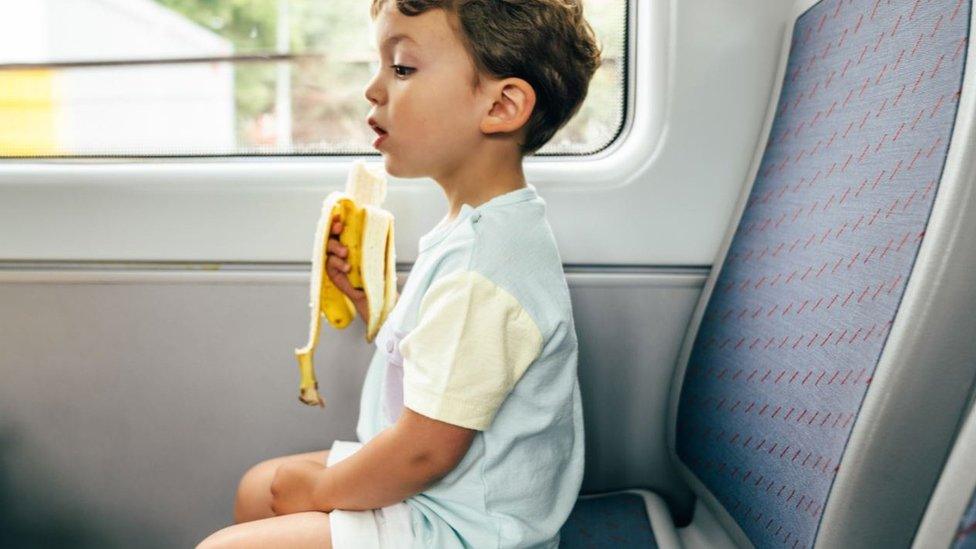
"Prohibit eating and drinking on urban public transport, except fresh water, breastfeeding and for medical conditions," says Dame Sally Davies
A ban to stop people snacking on public transport has been mooted by England's outgoing chief medical officer, in a bid to tackle childhood obesity. Has the plan found favour with commuters across the country, or left a bad taste in the mouth?
Six out of every 30 children are obese - and it's because they are being "flooded" with junk food, according to Professor Dame Sally Davies, external.
She has suggested a number of measures to tackle the growing crisis, but the one that has sparked the most debate is her proposal to ban snacking on certain public transport.
There was a caveat to her proposal: "Prohibit eating and drinking on urban public transport, except fresh water, breastfeeding and for medical conditions."
But what do people who have to make these journeys think of the idea?
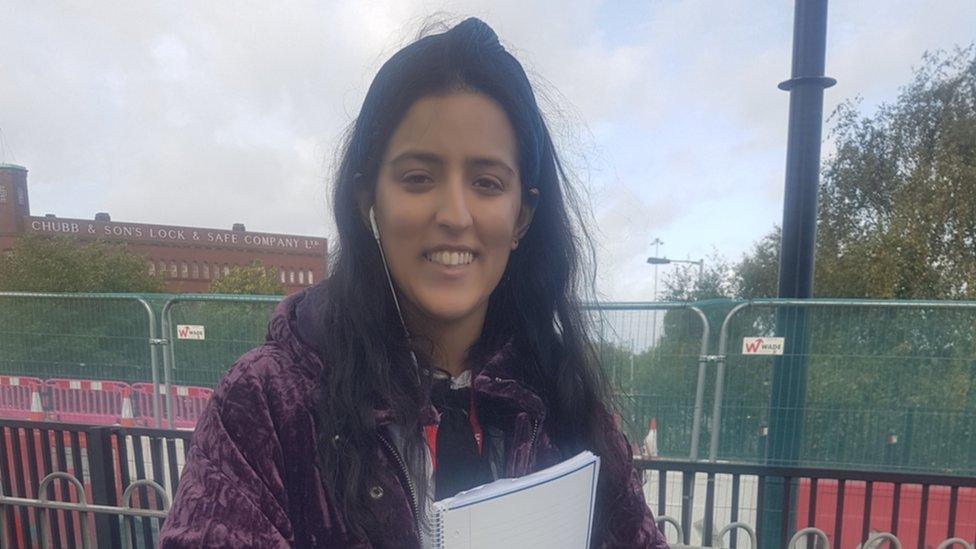
Maan Surdhar does not think banning snacks on public transport is the answer
In Wolverhampton, which is one of the worst places for childhood obesity, Maan Surdhar said a public transport snack ban would not solve the problem.
"I think children need to be more active," said the 29-year-old who lives in London and is a postgraduate at the University of Wolverhampton.
"In London, people are more aware of their health, children seem to be more active.
"But here all I see is children hanging around takeaways, eating all the time and then they go home and there's a real problem with gaming addiction too.
"I don't think the answer is banning food on public transport, because even though they might not eat on the bus for example, they'll still eat it outside won't they?"
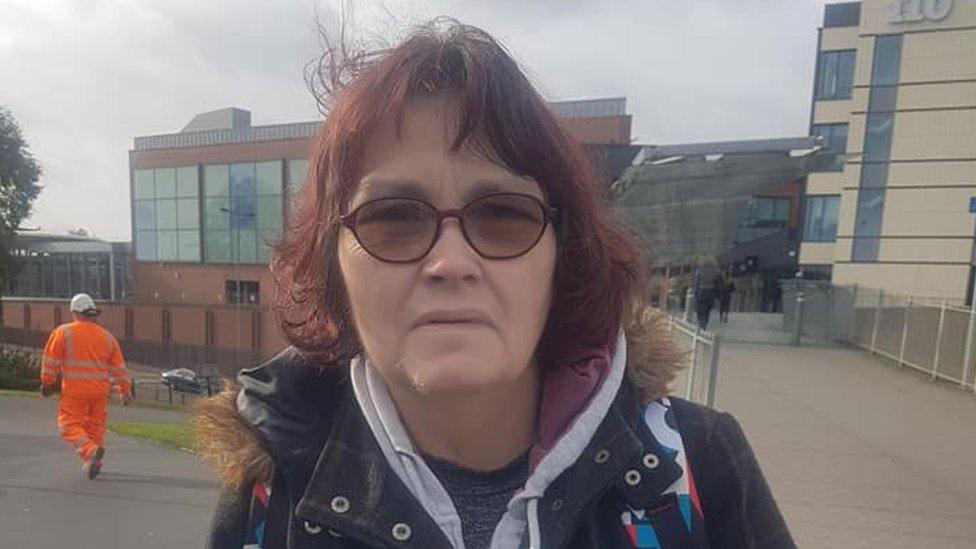
Rosemary O'Connor said sometimes the bus is the only place she has time to eat a snack
Rosemary O'Connor, 61, from Aldersley in Wolverhampton, said: "I don't think they should ban eating on public transport.
"I get buses and coaches often and have a snack on them because it's the only time I have sometimes.
"It's down to parents - a little and often can do you no harm can it?"
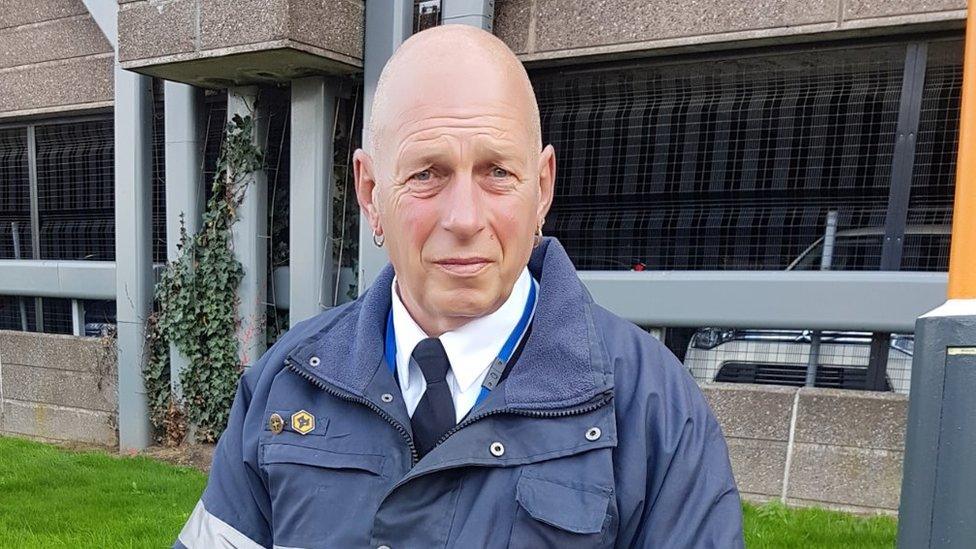
Tony Morgan called the plan "ridiculous"
Tony Morgan, 55, who works in security at Wolverhampton railway station branded the plan "ridiculous".
"I don't think it would help stop kids being obese," he said.
"The main thing is that parents are busy now and so it's easier to pick up a takeaway."
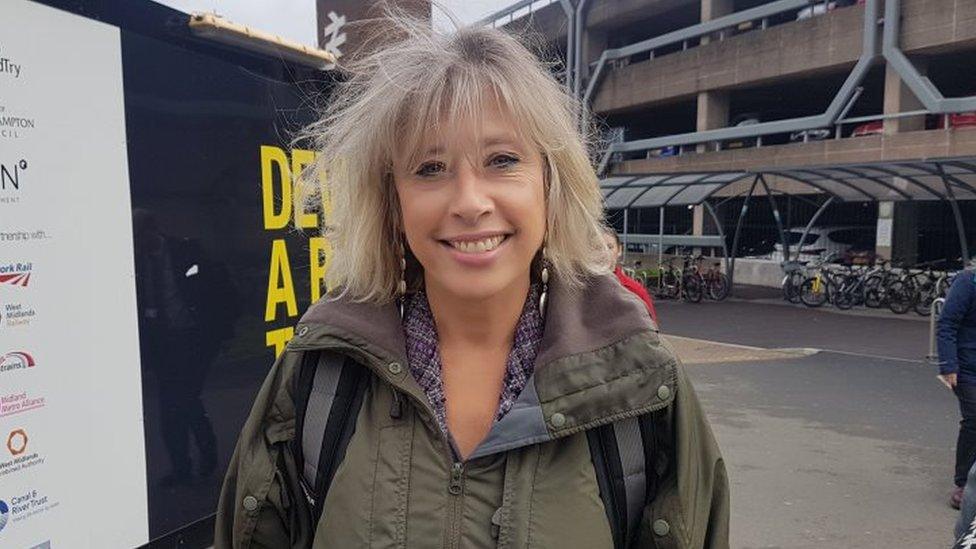
Michelle Crosbie said there were other ways to tackle childhood obesity
Michelle Crosbie, who is a public health lecturer for University of Wolverhampton, called for projects to tackle the root of the child obesity problem.
"The government has launched various schemes and looked at school dinners, but if you can come out of school and access fast food that's not going to help," she said.
"But banning food on public transport may not be the right way to do this. We need to fund grassroots initiatives with families and give children safe and accessible places to play in a way that combines physical exercise and technology. "
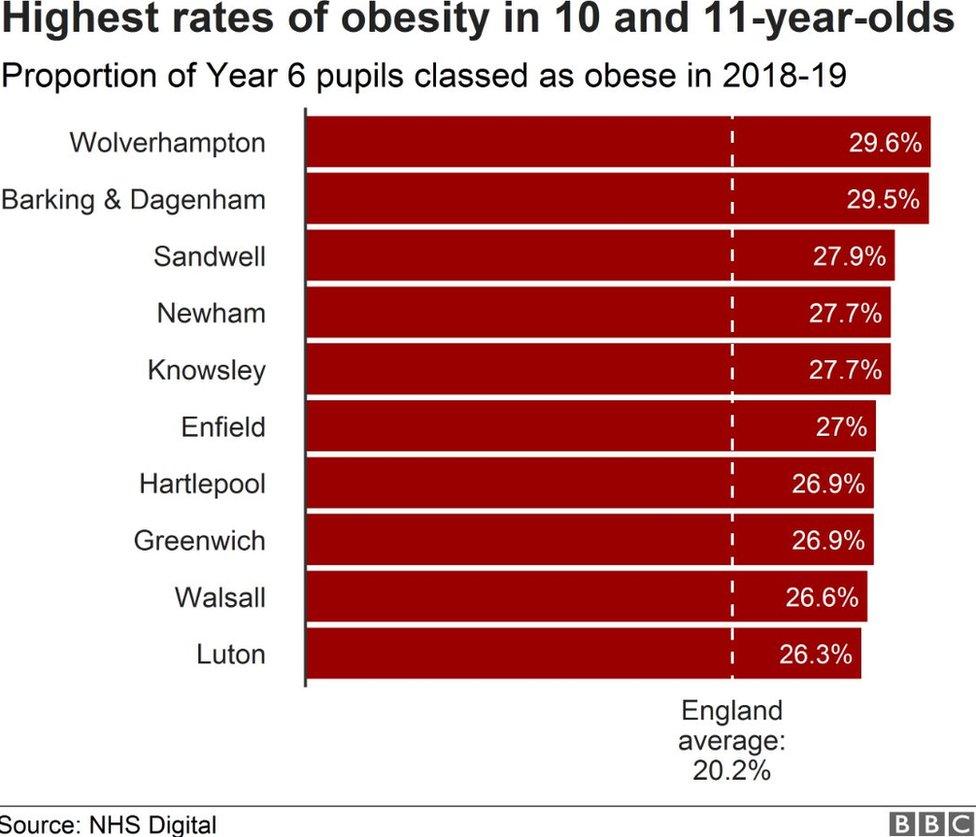
In Liverpool, Stacey said she agreed with the ban but not for young children.
"As a parent you've got to be able to give them a snack - and they can have a healthy snack," she said.
"Fast food and hot food yes, it's horrible sitting next to people eating that on the bus. That should not be allowed."
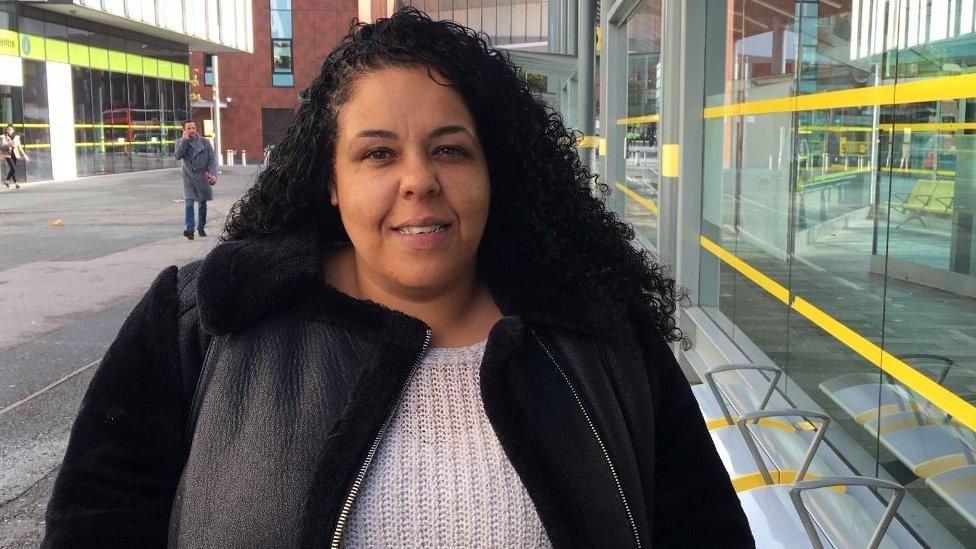
Stacey did not agree with the ban for young children
In Nottingham, Sue Walters said: "If you want to change what people eat, you should target the manufacturers, not the end users.
"People often don't have the time or information to make better choices but if the products are better, you immediately change what is being consumed."
Jo Drage said: "How would you enforce it? Who is going to police it?
"Who will judge when someone has to eat and what they can eat?"
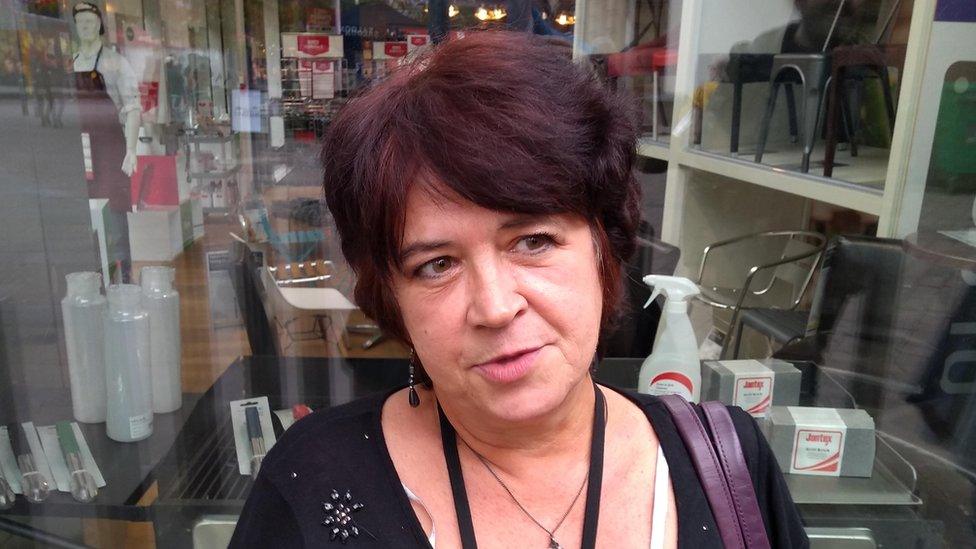
Sue Walters said snack manufacturers should be held to account
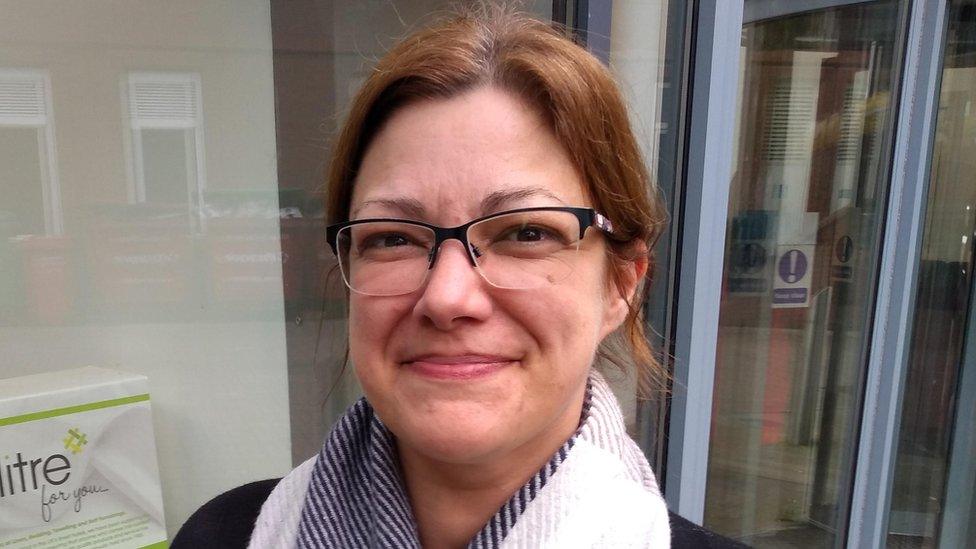
Jo Drage asked who would enforce the snack ban
Commuter Emma O'Riordan posted on Twitter that the idea was "nonsense" and pointed to the need to eat on the run.
"I'm currently on a bus for work that left at 06:35 BST so I left the house at 06:25. I'll be damned if anyone is taking my snack from me.
"Also, have the authors of this report been around 'hangry' kids?
"If you share an hour-long bus trip home with kids after school, would you rather see them have a snack or a meltdown?"
People in Manchester give a mixed response to banning snacks on public transport
TV presenter Kate Quilton, who fronted Channel 4's Food Unwrapped, said, external: "The issue is what kids are eating, not when.
"Giving my baby a bit of banana on the bus can be a godsend. (A) public transport ban is not the solution."
Allow X content?
This article contains content provided by X. We ask for your permission before anything is loaded, as they may be using cookies and other technologies. You may want to read X’s cookie policy, external and privacy policy, external before accepting. To view this content choose ‘accept and continue’.
A senior conductor with West Midlands Trains told BBC 5 live it was a "ridiculous idea" from a practical standpoint.
"I'm just wondering who this nannying nincompoop thinks is going to enforce this? Does she want us to strip search people before they get on the train, or seize the food off them when they start snacking?
"I get enough grief just asking somebody to take their feet off the seats, if I tried to take their food off them I'd have a riot on the train."
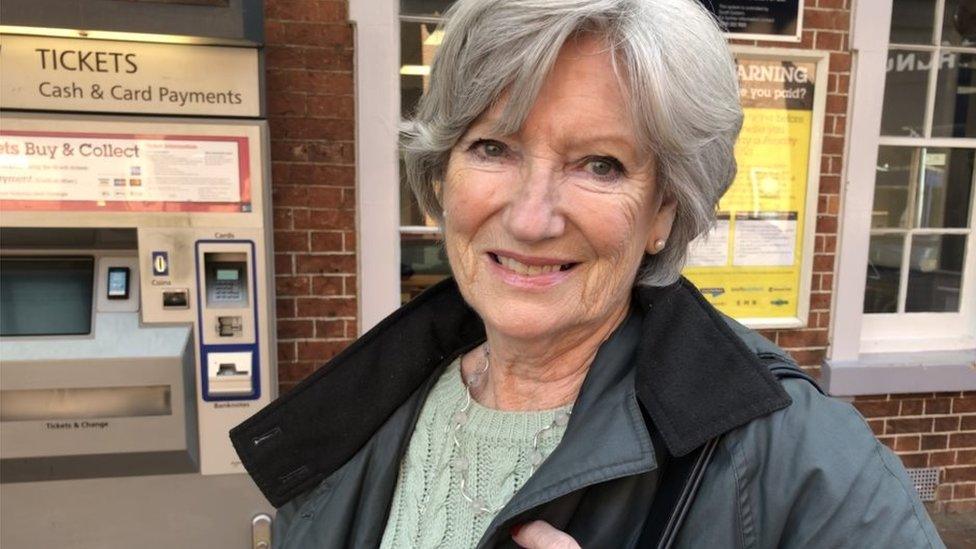
Anne Terry wasn't entirely convinced the ban was the right approach
Some people could see the benefits of the idea, but queried the approach.
Anne Terry, in Tunbridge Wells, said: "I can see a ban would be put in for the right reasons, but I'm not sure a blanket ban is the right way to go."
Fellow commuter Clive Freeman added: "I think people having hot, smelly foods on the train is more annoying for passengers than eating in general.
"If this is about obesity, it would be better if they just said no fizzy drinks or junk food. It's really for the manufacturers to make the food and drink they produce a bit healthier."
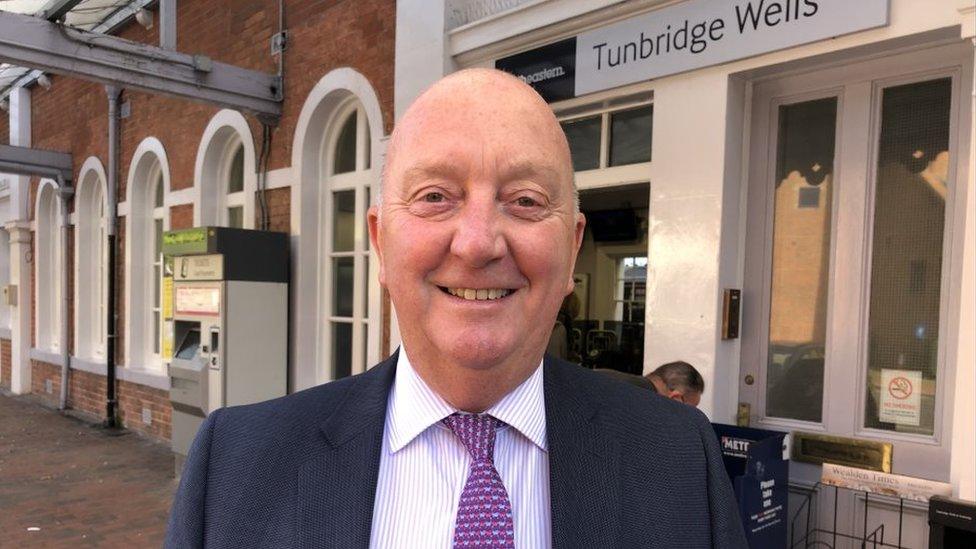
Clive Freeman said food manufacturers should improve the healthiness of their products
Dr Simon Blainey, an associate professor of transport at the University of Southampton, said, external it was a "terrible idea" and an "excellent way to discourage people from travelling by healthy and sustainable modes".
Mark Ryan, a commuter in central London, said: "I think it's a sensible idea to ban snacking on the Tube but I don't think it will really help with cutting obesity.
"The problem is our fast food culture, that's what needs to change. I also don't see how they would be able to police it."
Health Secretary Matt Hancock said his department would study the report closely and "act on the evidence".
A Department for Health spokesman said there were no plans to ban snacking on public transport.
- Published10 October 2019
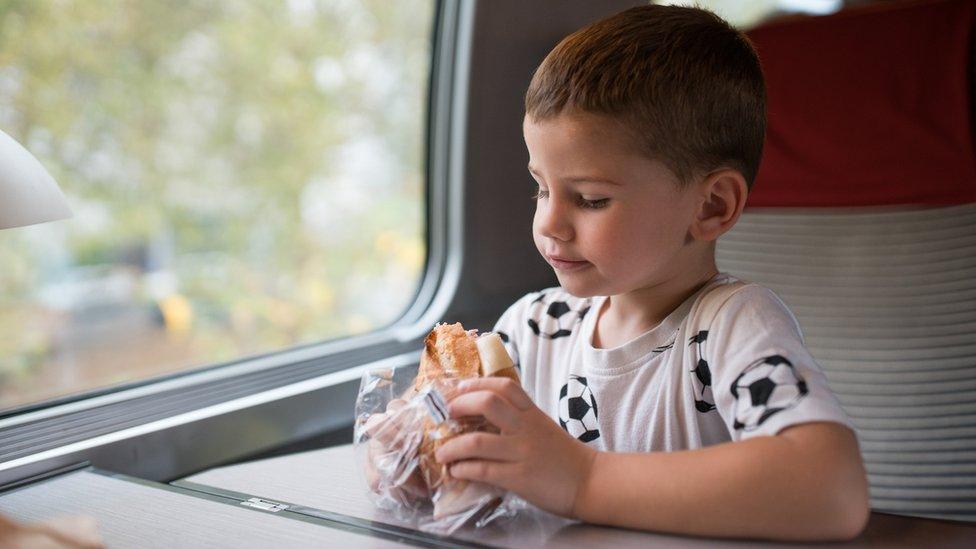
- Published24 June 2018
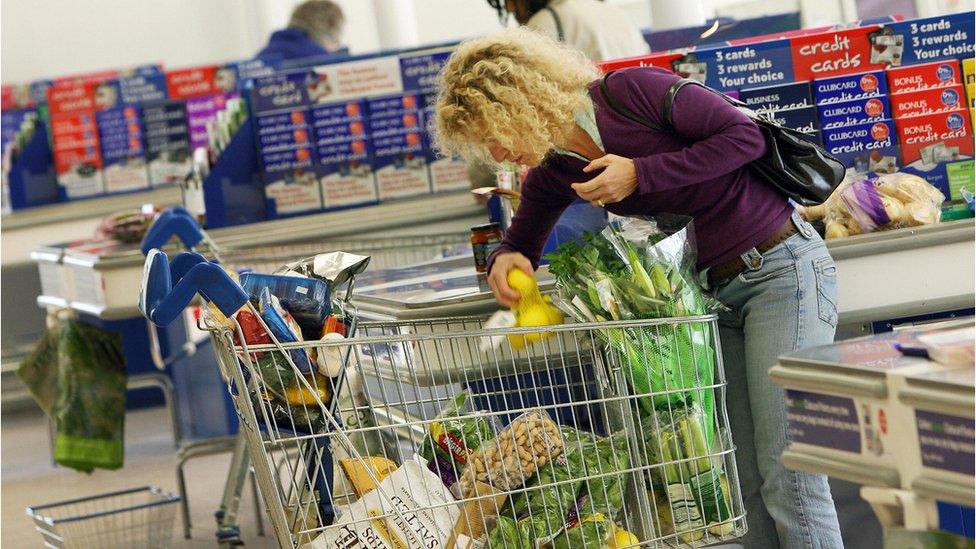
- Published24 June 2018
